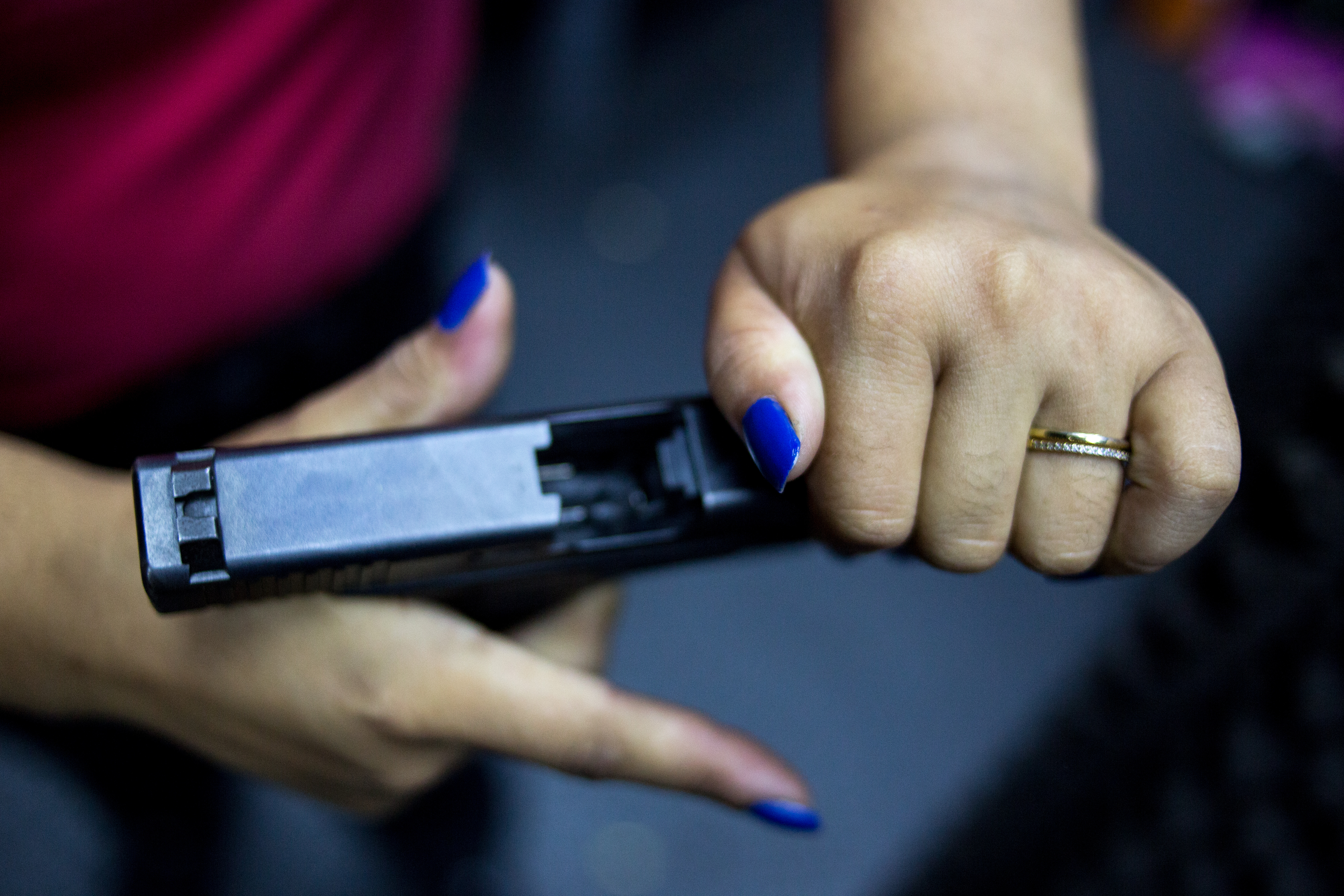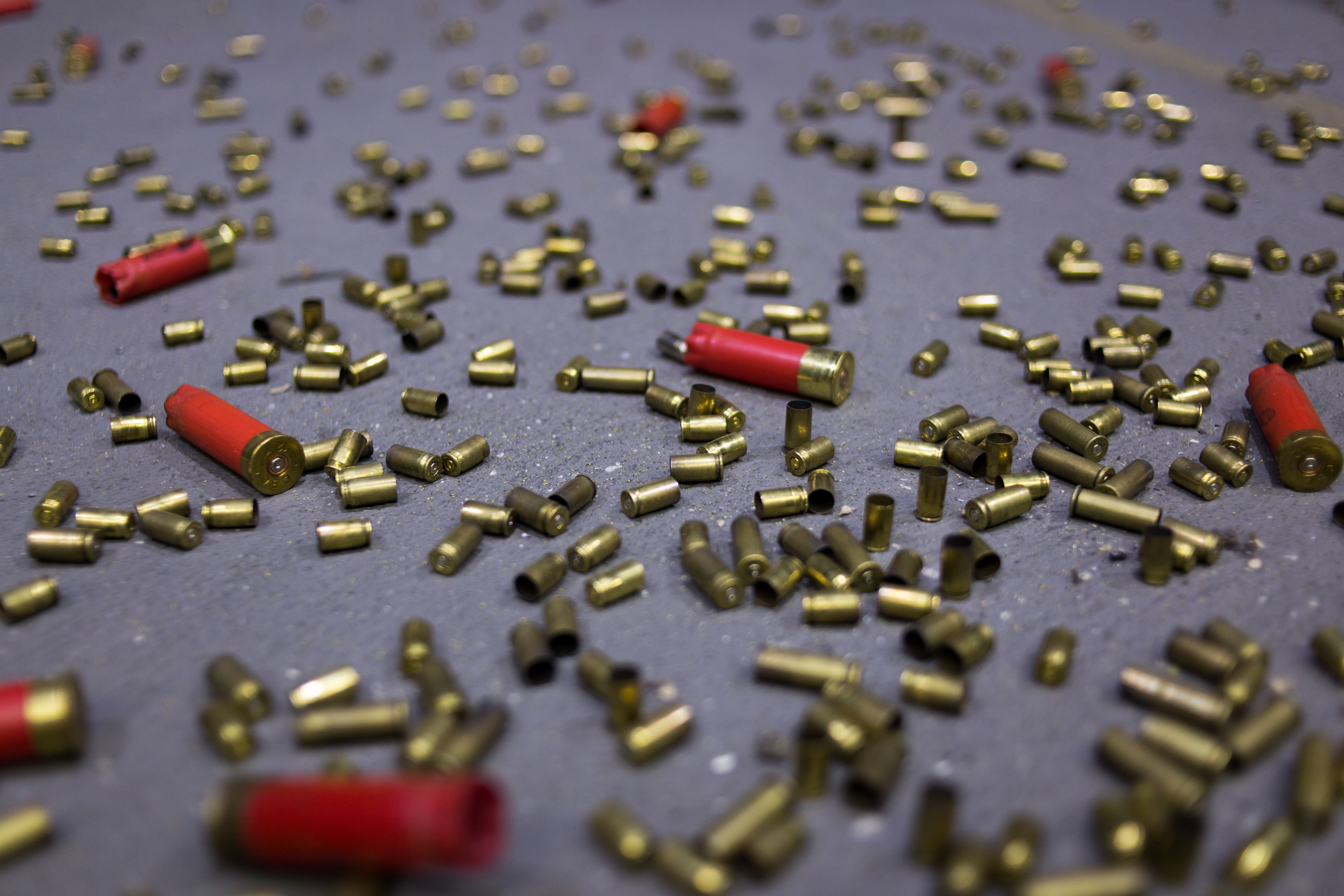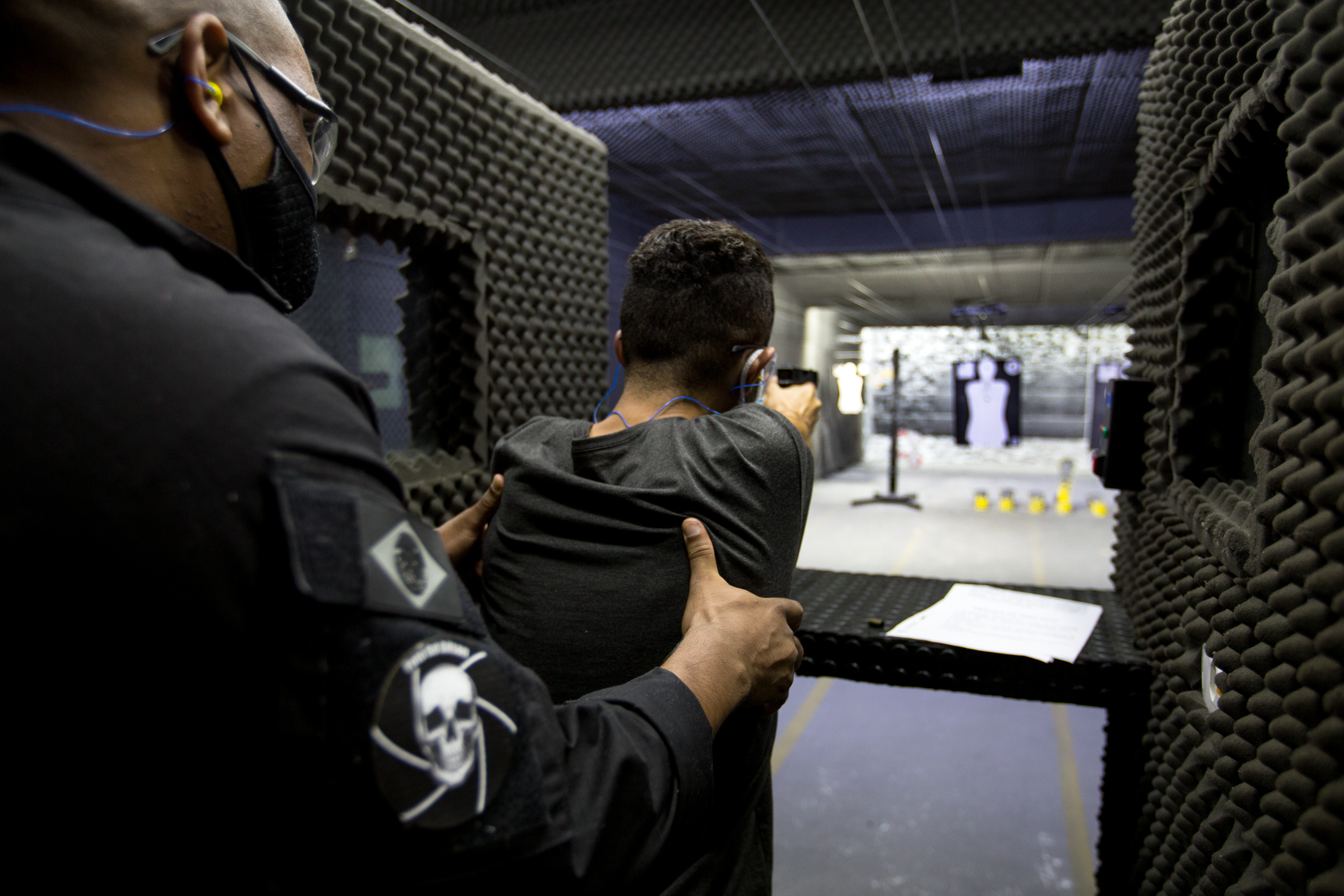Brazilians Are Buying Guns in Record Numbers With Barely Any Oversight
February 12, 2021SAO PAULO, Brazil - Gun purchases in Brazil nearly doubled last year, yet controls on the purchase and use of weapons is weak and violent homicides are rising.
In 2020, nearly 180,000 new guns were registered in Brazil, the highest number on record and a 91% increase on the previous year.
In the first two years of his presidency, Jair Bolsonaro has made an array of decrees and repeals to encourage weapon purchases, including a decision to scrap the import tax on firearms (which was temporarily suspended by the Supreme Court).
As a result, gun culture in Brazil is on the rise. More people have shown an increased interest in buying and using guns, pushing firearm ownership to record numbers.
Brazil - much like nations including the United States - is divided on the issue.
More than two-thirds of people are against gun ownership, according to a survey by research institute Datafolha in 2019. But these record amounts of firearms are being purchased and held by a minority group with specific characteristics: wealthy men from Brazil’s south, where Taurus, the country's largest gun manufacturer, is headquartered.
“The data we have still points to a very strong rejection by the Brazilian population towards facilitating gun ownership and gun bearing,” explained Thiago Amparo, a human rights professor at the Fundação Getúlio Vargas Law School in São Paulo. “Bolsonaro's vision speaks much more to the lobby of the firearms industry, to which he is aligned, than to an expression of popular will.”

Entities that monitor public security point to a reversal in 2020 of what was a drop in the number of violent deaths recorded in the two previous years. In an October 2020 report, Fórum Brasileiro de Segurança Pública found that intentional violent deaths - the majority through the use of firearms - increased by more than seven percent during the first six months of 2020 compared to 2019.
“Even amid the coronavirus pandemic, homicides have gone back to growing,” said the report, which is based on data from the country’s police forces.
Campaigners and public security experts are concerned. As well as their legal purchase, a black market in firearm sales is also fuelling violent crime, they claim. “We know that the reduction of controls over these firearms leads to legal arms migrating to illegality and being used by organized crimes and militias,” said Amparo.
Firearms migrating into the black market also increases the risk they will be used in confrontations between civilians.
“There is a cultural side to Brazil of solving conflicts in a violent manner, it is typical of our history,” argued the lawyer and sociologist Carolina Ricardo, executive director at Instituto Sou da Paz, a civil society entity that monitors violence and public security in Brazil. “The presence of a gun in a conflict … will transform this conflict into a more lethal one, differently than a knife.”
But despite the growth in legal gun ownership in Brazil, mechanisms to track their use and owners are lacking.

In April 2020, the president revoked ordinances published by the military that toughened the tracing, identification and marking of guns and ammunition. He justified that by saying that the ordinances did not follow his guidelines in decrees.
“Brazil needs to strengthen its capacity to trace arms and ammunition so that we know effectively the origin of the arms being used in crimes, from banal crimes with small arms, to the big crimes practiced with long weapons in the format of structured drug trafficking in Rio de Janeiro, and more recently bank robberies,” said Ricardo.
In April 2020, the president revoked ordinances published by the military that toughened the tracing, identification and marking of guns and ammunition. He justified that by saying that the ordinances did not follow his guidelines in decrees. Meanwhile, in Congress, a group of representatives, popularly called 'Bullet Caucus', lobby for less restrictive gun laws.
“Brazil needs to strengthen its capacity to trace arms and ammunition so that we know effectively the origin of the arms being used in crimes, from banal crimes with small arms, to the big crimes practiced with long weapons in the format of structured drug trafficking in Rio de Janeiro, and more recently bank robberies,” said Ricardo.
Bolsonaro’s views on guns is in stark contrast to those of any recent president in Brazil. In 2003, during the first government of former President Luiz Inácio Lula da Silva, a Disarmament Statute was discussed in Congress, resulting in the Disarmament Campaign, which encouraged the population to hand-in unregistered firearms to the police or to formalize gun ownership. From 2004 to 2015, over 670,000 firearms were handed in.
As gun ownership has become easier and more popular, so has the hobby of hunting, collecting and shooting. CACs, an acronym in Portuguese for hunters, collectors and sports shooters, is a group of nearly half a million Brazilians that registered nearly 138,000 new firearms in 2020, compared to a little over 78,300 in the previous year.
The number of shooting clubs surged from 151 in 2019 to 1,345 in 2020, according to Army data collected by newspaper O Globo. Bolsonaro, a retired military officer, is a fan, and last year posted a video on Facebook in which he visited a range and fired a weapon.
At a shooting club in the Cambuci neighborhood, in the central region of São Paulo, Saturday is a busy day. Rare are the moments in which gunshots can’t be heard. The club, a gated two-story property, has over 3,000 members who pay some $150 per year in membership.

Six months ago, Fábio Irapuã Casitas, a former Army trooper who now works as a physical instructor, began practicing sports shooting here with the aim of becoming a Paralympic athlete in sports shooting. In 2013, Casitas was run over by a car and the accident left him paraplegic.
“The most powerful weapon is knowledge” is the club's motto, which resonated with Casitas. “I am in favour of the right to carry on condition that the shooter has spent at least three days inside a range before obtaining his license. And this is for every citizen,” he said.
Many of Bolsonaro’s acts have benfited CACs, such as his decision to increase the number of permitted purchases of firearms per year, from 16 to 60, and to allow access to once restricted ammunition. In January 2019, just 15 days after his inauguration, Bolsonaro issued a decree which exempted CACs from justifying the need for a firearm.
His measures have blurred the lines between those who want a gun for sports purposes and those who want to own a firearm for self-defense. There is a lack of research on this, but experts say that the sporting justification could be used as a loophole to access firearms more easily.
“Because you do not need to justify, in practice it became easier to register as a CAC than as a citizen who wishes to obtain a firearm for self-defense,” explained Natália Pollachi, project manager at Instituto Sou da Paz.
Even among shooters, there are more progressive groups that defend the need to increase responsibility regarding gun ownership. Casitas said shooting clubs should take on more responsibility regarding a psychological and psychiatric assessment of potential members.
“As I see it, we first need to qualify, educate and then arm.”
